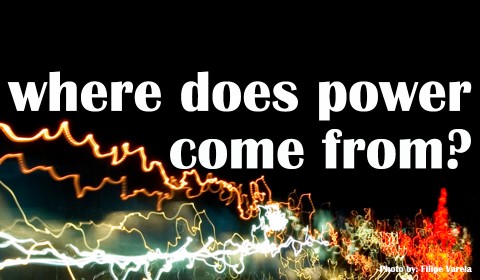Tag Archive: power
June 15, 2010
Sometime ago I caught this heart warming short film on @NurtureGirl‘s blog – Nurture.biz – and since it has come up in conversation a couple of times lately, I thought it would be a good time to share it forward. It is so important to contemplate our own individual power to make things beautiful.
May 12, 2010

|Photo by A Perfect Vacuum|http://www.flickr.com/photos/jamesmuckian/515141082/sizes/m/|
This is the fourth in a series of postings about power and group facilitation processes, based on research from a few years ago. Today’s post is about how power is built into group narrative.
As I was doing research, I came across a batch of work about narrative theory by Sara Cobb and Janet Rifkin (cited below). Cobb and Rifkin researched how a narrative is constructed and what impact it has on the ultimate outcome of mediation sessions. They found that the first story told tends to be privileged and “colonize” later stories told.? By framing the discussion to come, this initial story tends to narrow and define the direction of the ensuing conversation. Later versions are generally tied to the initial story and thus are unable to be fully developed. And the outcome of mediation is generally tied to the initial story. Read More
May 5, 2010

More about power and group processes. There have been a mountain of books written about the “bases of power” and the “types of power”. I’ve done some work to try to boil it down – and find thinking about this very useful in moving forward the conversation about how to address power issues in group processes.
Read More
April 28, 2010

|Photo by Carina Ice|http://www.flickr.com/photos/carinaice/4232182696/|
One of the first questions you might ask when thinking about looking at power dynamics in group facilitation is what IS power anyway? This seemingly simple question, of course, is not really all so simple after all. What do you think? How would you describe power?
When I first started trying to answer this question for myself, I found that I was overwhelmed with material -? literally hundreds and hundreds of books about what power is, where it comes from, how it operates, etc.? For many, a definition of power has to do with the ability to force something to do something they wouldn’t have done otherwise – a coercive definition of power.? Feminist psychologist Jean Baker Miller described power as “the capacity to produce a change.” Others (and in fact, our common terminology) talks about power as a “thing” that can be divided, shared, owned, and transferred. Read More
April 21, 2010

|Photo by Great Beyond|http://www.flickr.com/photos/tonyjcase/2759363747/|
A few years ago, I researched and wrote a masters’ thesis on addressing power dynamics in collaborative process design and facilitation.? I was doing the study based on great questions raised over the years by Cyndi Suarez (Co-Director of Northeast Action) – and with the belief that if power dynamics are not well understood and addressed, group process facilitators are likely to unknowingly reinforce the status quo – a scary thought for those of us working on social justice and social change!
Read More
April 21, 2010

|Photo by Great Beyond|http://www.flickr.com/photos/tonyjcase/2759363747/|
A few years ago, I researched and wrote a masters’ thesis on addressing power dynamics in collaborative process design and facilitation.? I was doing the study based on great questions raised over the years by Cyndi Suarez (Co-Director of Northeast Action) – and with the belief that if power dynamics are not well understood and addressed, group process facilitators are likely to unknowingly reinforce the status quo – a scary thought for those of us working on social justice and social change!
Read More
December 8, 2009
Part 2 of Three Lenses for Collaboration
Last week I started writing about the Interaction Institute for Social Change and our three lenses of collaboration. We are talking about the sort of collaboration that is needed if we are to address the evolutionary challenges that define this historical moment. We are talking about collaboration that catalyzes our collective wisdom and capacity to think new thoughts, the sort of collaboration that allows us to maximize our shared resources while inviting us to live ourselves into the world we are trying to build. This is why I call this the lens of democracy, because it is the lens through which we define the best possible ways of being-with. Read More
December 1, 2009
The Interaction Institute for Social Change is a vibrant place, a real learning community; we are always seeking to be on our learning edge. Our internal strategic process has led us to wonder how to define ourselves for this new era without necessarily losing our 16 years of experience and the power of our proven collaborative methodology. A couple of things have become even more clear through this process. It is clear to us, to our clients and partners in the work of social transformation that collaboration is what we do.
We might be working with a single organization or a group of organizations, we may be designing a learning event, a high level facilitation or a citywide change process, but whatever it is that we are doing – collaboration is at its core. We help people come together and work together.
Read More
October 27, 2009
I just finished reading “Mob Rule! How Users Took Over Twitter” by Steven Levy on this month’s Wired. This is the stuff movements dream of! How many times have you been a part of the “leadership” conversation? Or the eternal question on the problematic role of the charismatic leader? Who should really be in charge? What is organic or truly democratic? Who has the power? What type of power? And how is power distributed?
We often say that one of the key attributes of networks is that you have to give up control. And little by little we are learning that this giving up of control is a new discipline of leadership, something we are having to learn after being socially trained into the command and control fantasy. From this perspective, by creating a space that organizes and runs itself, the people of Twitter have accomplished something that we movement builders can only dream of – so I think it’s worth taking a closer look.
Read More
October 27, 2009
I just finished reading “Mob Rule! How Users Took Over Twitter” by Steven Levy on this month’s Wired. This is the stuff movements dream of! How many times have you been a part of the “leadership” conversation? Or the eternal question on the problematic role of the charismatic leader? Who should really be in charge? What is organic or truly democratic? Who has the power? What type of power? And how is power distributed?
We often say that one of the key attributes of networks is that you have to give up control. And little by little we are learning that this giving up of control is a new discipline of leadership, something we are having to learn after being socially trained into the command and control fantasy. From this perspective, by creating a space that organizes and runs itself, the people of Twitter have accomplished something that we movement builders can only dream of – so I think it’s worth taking a closer look.
Read More
September 24, 2009

We had an interesting conversation during last week’s Engage for Results session at the Donors Forum in Chicago. IISC has been partnering with Grantmakers for Effective Organizations (GEO) to offer this two day skill-building session to foundations interested in strategies for engaging stakeholders in their grantmaking. This offering grew out of GEO’s Change Agent Project, which revealed the strong interest on the part of nonprofits to be in deeper relationship with funders in order to achieve greater impact.
On the first morning, I shared some striking results from a 2008 GEO survey of attitudes and practices of foundations in the United States. Specifically, less than half (49%) of those foundations surveyed indicated that it was important for their organization to seek external input. Among GEO membership the number was higher, coming in at 78%. However, the survey also showed that overall only 36% of respondents actively solicited feedback from their grantees. That strikes as quite a discrepancy between stated beliefs and actual practice. So I turned to the workshop participants for reactions.
Read More
September 24, 2009

We had an interesting conversation during last week’s Engage for Results session at the Donors Forum in Chicago. IISC has been partnering with Grantmakers for Effective Organizations (GEO) to offer this two day skill-building session to foundations interested in strategies for engaging stakeholders in their grantmaking. This offering grew out of GEO’s Change Agent Project, which revealed the strong interest on the part of nonprofits to be in deeper relationship with funders in order to achieve greater impact.
On the first morning, I shared some striking results from a 2008 GEO survey of attitudes and practices of foundations in the United States. Specifically, less than half (49%) of those foundations surveyed indicated that it was important for their organization to seek external input. Among GEO membership the number was higher, coming in at 78%. However, the survey also showed that overall only 36% of respondents actively solicited feedback from their grantees. That strikes as quite a discrepancy between stated beliefs and actual practice. So I turned to the workshop participants for reactions.
Read More






